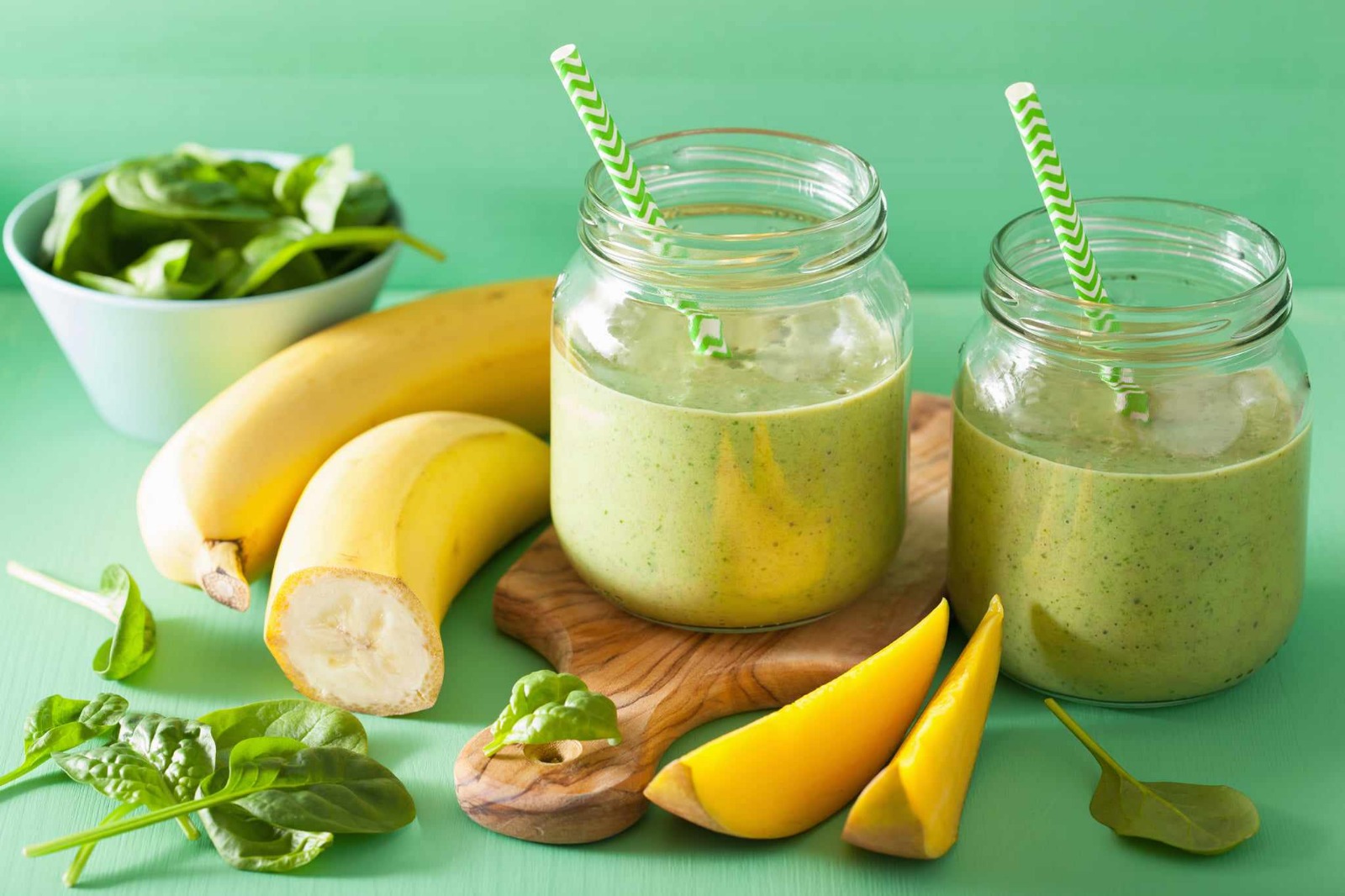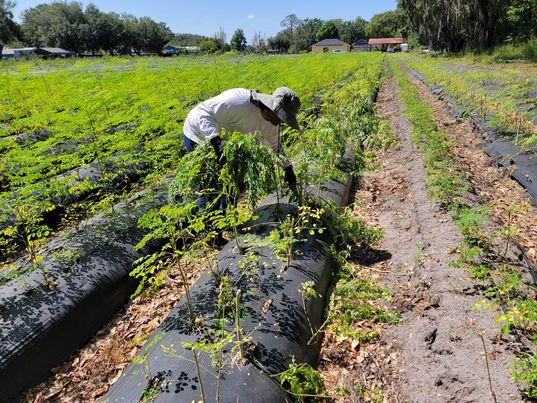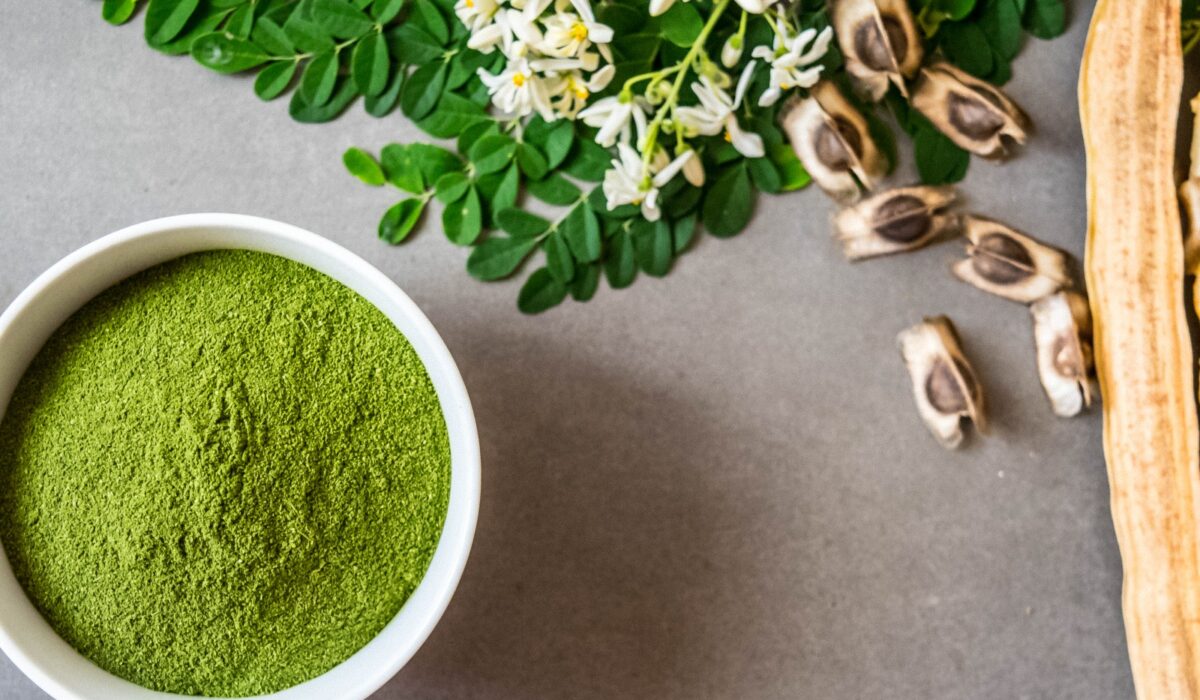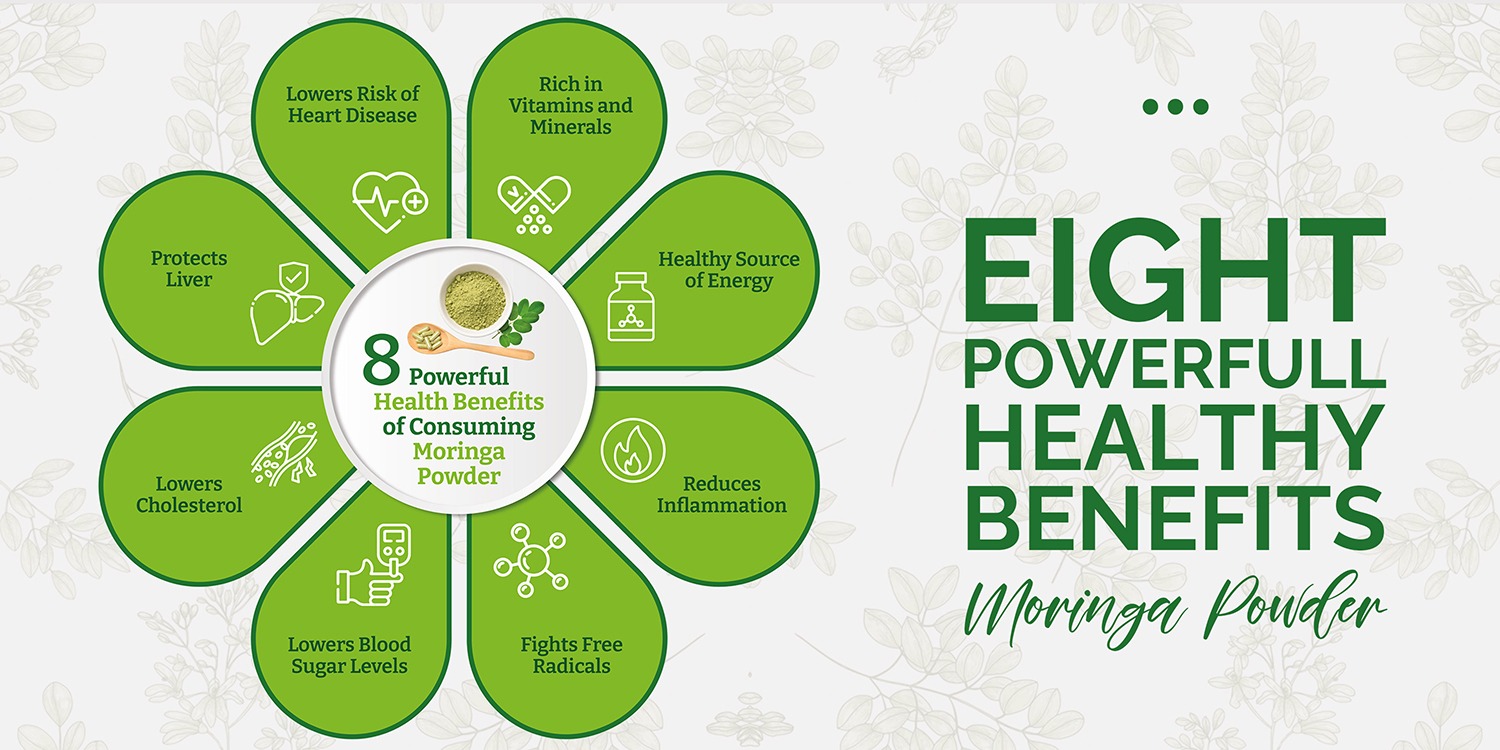What is Moringa?
Have you ever wondered if there’s a secret to unlocking optimal health and vitality? In a world obsessed with superfoods and their extraordinary benefits, there’s one gem that often goes unnoticed. What is Moringa? This remarkable plant, often referred to as “the Miracle Tree” or “the Tree of Life,” holds incredible potential to revolutionize our understanding of nutrition and well-being.
While many of us are familiar with the popular superfoods like kale, chia seeds, or acai berries, Moringa remains relatively unknown. But don’t let its obscurity fool you; Moringa is a powerhouse of nutrition and boasts a rich history that stretches back centuries.
Originating from various regions across the globe, Moringa’s adaptability and fast growth make it a remarkable botanical wonder. Whether it thrives in the arid landscapes of Africa or the tropical forests of Asia, this tree holds a treasure trove of nutrients waiting to be discovered.
So, what exactly sets Moringa apart from the rest? To unravel this mystery, we’ll delve into its intriguing past, uncover its extraordinary nutritional content, and explore the potential health benefits that have captivated scientists and wellness enthusiasts alike.
Whether you’re seeking to enhance your well-being, boost your immunity, or explore new culinary adventures, Moringa may just be the missing link you’ve been searching for. Join us on this journey as we unlock the secrets of Moringa and uncover nature’s gift to a healthier and more vibrant life. Get ready to be amazed by the wonders of Moringa, a true superfood hiding in plain sight.
Unveiling Moringa
When it comes to hidden treasures in the plant kingdom, Moringa takes the spotlight as a fascinating botanical marvel. This incredible tree, known by various names such as “the Miracle Tree” or “the Tree of Life,” has a captivating history that spans cultures and continents.
Originating from diverse regions worldwide, including Africa, Asia, and South America, Moringa has thrived in both ancient and modern civilizations. Its ability to adapt and grow rapidly in various climates and soil conditions is truly remarkable, earning it a well-deserved reputation as a resilient plant.
Moringa’s significance goes beyond its ability to survive in challenging environments. It has been revered for centuries due to its abundant healing properties and its vital role in traditional medicine systems. In ancient Ayurvedic medicine, for instance, Moringa has been valued as a remedy for various ailments, earning it the moniker “the Elixir Tree.”
One of the most intriguing aspects of Moringa is its impressive size and structure. With its slender trunk and delicate, feathery leaves, it stands tall as a symbol of nature’s elegance. The tree’s leaves, in particular, are packed with nutrients, capturing the essence of its exceptional health benefits.
Moringa’s leaves are an absolute powerhouse of nutrition, boasting an extraordinary combination of vitamins, minerals, and antioxidants. They are an abundant source of vitamin A, which plays a crucial role in maintaining healthy vision and promoting cellular growth. Additionally, Moringa leaves are rich in vitamin C, an essential nutrient for a robust immune system, and vitamin E, a potent antioxidant that helps protect our cells from damage.
The mineral content of Moringa leaves is equally impressive. They contain significant amounts of iron, which is vital for red blood cell production and overall energy levels. Calcium, another crucial mineral found in Moringa, supports strong bones and teeth, making it a valuable addition to our daily diet.
Beyond its leaves, Moringa boasts other parts that contribute to its extraordinary value. The tree’s seeds are a source of healthy fats and proteins, while Moringa oil derived from these seeds has been used for centuries in beauty and skincare products for its nourishing and rejuvenating properties.
Intriguingly, Moringa’s incredible nutritional content is not the only reason it garners attention. Its potential as a sustainable solution for various global challenges, such as malnutrition and environmental degradation, has gained recognition. Its ability to thrive in arid climates, combined with its nitrogen-fixing properties that enhance soil fertility, makes Moringa an exceptional candidate for agroforestry and land restoration initiatives.
| Attribute | Information |
|---|---|
| Common Name | Moringa plant, moringa tree, miracle tree, horseradish tree, drumstick tree, ben oil tree |
| Botanical Name | Moringa oleifera |
| Family | Moringaceae |
| Plant Type | Tree |
| Mature Size | 25-35 ft. tall, 15-25 ft. wide |
| Sun Exposure | Full |
| Soil Type | Loamy, sandy, well-drained |
| Soil pH | Neutral, acidic |
| Bloom Time | Spring |
| Flower Color | White |
| Hardiness Zones | 10-11 (USDA) |
| Native Area | Asia |
As we embark on this journey to discover the wonders of Moringa, it’s crucial to recognize the profound impact this tree has had on societies throughout history. From its roots in ancient medicine to its modern-day application in addressing food security, Moringa’s legacy is one of resilience, nourishment, and hope.
Join us as we explore the nutritional powerhouse that is Moringa, uncover its remarkable benefits, and celebrate the wisdom of nature’s offerings. Brace yourself for a truly enlightening experience as we uncover the secrets of Moringa, the captivating Miracle Tree that holds the key to a healthier and more vibrant future.
Nutritional Powerhouse: The Abundance of Nutrients in Moringa

When it comes to nutritional powerhouses, Moringa stands in a league of its own. This extraordinary tree, often referred to as “the Miracle Tree,” is packed with an abundance of essential nutrients that can elevate our health and well-being to new heights.
At the heart of Moringa’s nutritional superiority lies its remarkable leaves. These delicate green wonders are bursting with vitamins, minerals, and antioxidants that can rival the most celebrated superfoods on the market.
Let’s start with vitamins. Moringa leaves are a fantastic source of vitamin A, a nutrient crucial for maintaining healthy vision and promoting proper immune function. In fact, just a small serving of Moringa leaves can provide several times more vitamin A than carrots, making it a stellar option for supporting eye health.
But the benefits don’t stop there. Moringa leaves also boast an impressive amount of vitamin C, which is renowned for its immune-boosting properties. Vitamin C not only aids in strengthening our body’s defense system but also supports collagen production, contributing to healthy skin, bones, and blood vessels.
Additionally, Moringa leaves contain vitamin E, a potent antioxidant that helps protect our cells from damage caused by free radicals. This vitamin plays a crucial role in maintaining youthful skin, combating inflammation, and promoting overall well-being.
When it comes to minerals, Moringa leaves offer an impressive array of essential nutrients. Iron, for example, is vital for the production of red blood cells and the transportation of oxygen throughout our bodies. With its high iron content, Moringa leaves can be particularly beneficial for individuals prone to anemia or those seeking to boost their energy levels naturally.
Calcium, another mineral abundant in Moringa leaves, is widely recognized for its importance in maintaining strong bones and teeth. Including Moringa in your diet can be a great way to ensure you’re getting an adequate intake of this crucial mineral, especially for those who follow plant-based diets or are lactose intolerant.
Moringa doesn’t stop at vitamins and minerals alone. It also delivers a healthy dose of antioxidants, which play a crucial role in neutralizing harmful free radicals and reducing oxidative stress. The antioxidants found in Moringa leaves, such as quercetin and chlorogenic acid, have been linked to a wide range of potential health benefits, including anti-inflammatory effects and protection against chronic diseases.
Moreover, Moringa’s seeds deserve special mention. They are rich in beneficial fats and proteins, making them an excellent addition to a well-rounded diet. These seeds can be ground into a nutritious powder or pressed to extract Moringa oil, which is known for its moisturizing and nourishing properties when used in skincare products.
The incredible nutritional profile of Moringa makes it a true superfood that can support our overall health and vitality. Whether you’re looking to boost your immune system, improve your skin’s radiance, or fortify your body with a range of essential nutrients, Moringa is a natural choice.
In the next section, we will dive deeper into the potential health benefits of Moringa and uncover how this exceptional tree can become a transformative addition to your daily routine. Brace yourself for a journey into the realm of wellness as we explore the remarkable therapeutic potential of Moringa, the Miracle Tree of nature’s bounty.
Health Benefits: Exploring the Therapeutic Potential of Moringa

Beyond its impressive nutritional content, Moringa has garnered attention for its potential health benefits. This section will delve into the therapeutic potential of Moringa, shedding light on the scientific research and traditional use that have captivated health enthusiasts and experts alike.
- Antioxidant Powerhouse: Moringa’s antioxidant properties are at the forefront of its health benefits. The leaves, rich in antioxidants like quercetin and chlorogenic acid, can help combat oxidative stress and reduce inflammation in the body. By neutralizing harmful free radicals, Moringa may contribute to the prevention of chronic diseases, such as heart disease, diabetes, and certain types of cancer.
- Immune System Support: The immune-boosting effects of Moringa are widely recognized. Its high vitamin C content enhances immune function, helping to protect the body against infections and illnesses. Additionally, the presence of immune-boosting compounds, such as beta-carotene and various antioxidants, further fortifies the body’s defense mechanisms, keeping us resilient and healthy.
- Blood Sugar Regulation: Research suggests that Moringa may play a role in managing blood sugar levels. Compounds found in Moringa leaves, such as isothiocyanates, have been shown to regulate glucose metabolism and improve insulin sensitivity. This potential benefit is of particular interest for individuals with diabetes or those at risk of developing the condition.
- Cardiovascular Health: Moringa may have a positive impact on cardiovascular health. Studies indicate that Moringa leaves’ bioactive compounds, including flavonoids and polyphenols, possess properties that can help lower cholesterol levels and reduce the risk of heart disease. By promoting healthy blood lipid profiles and inhibiting oxidative stress, Moringa contributes to maintaining a healthy heart.
- Anti-Inflammatory Effects: Chronic inflammation is implicated in various diseases, from arthritis to obesity. Moringa’s anti-inflammatory properties, attributed to its bioactive compounds, have been studied extensively. These compounds help reduce inflammatory markers and inhibit the production of pro-inflammatory molecules, potentially alleviating symptoms associated with inflammatory conditions.
- Nutritional Support for Pregnant Women: Moringa’s nutritional richness makes it an excellent supplement for pregnant women. The high iron content can help prevent iron deficiency anemia, a common concern during pregnancy. Additionally, Moringa provides essential vitamins and minerals necessary for fetal development, making it a valuable addition to prenatal nutrition.
While scientific research on Moringa is still ongoing, its traditional use as a therapeutic plant spans centuries. Cultures around the world have embraced Moringa for its potential healing properties, incorporating it into traditional remedies for various ailments.
It’s important to note that Moringa is not a magical cure-all, and individual experiences may vary. As with any dietary supplement or wellness practice, it’s advisable to consult with a healthcare professional before incorporating Moringa into your routine, especially if you have specific health concerns or are taking medications.
By exploring the therapeutic potential of Moringa, we unlock a world of possibilities for improving our well-being. In the next section, we will delve into creative ways to incorporate Moringa into our diets, transforming it from a mere superfood into a delicious and nourishing culinary adventure. Get ready to explore the versatility of Moringa and embark on a journey of flavors and wellness.
Culinary and Culinary Uses

Now that we have discovered the nutritional powerhouse that is Moringa, let’s explore the exciting realm of culinary possibilities that this remarkable superfood offers. Adding Moringa to your diet boosts nutrition and brings a unique, vibrant flavor to your meals.
Moringa leaves, with their delicate taste reminiscent of spinach or arugula, can be easily incorporated into a wide range of dishes. One of the simplest and most popular ways to enjoy Moringa is by adding powdered Moringa to smoothies. The subtle earthy notes of Moringa blend harmoniously with fruits, vegetables, and other superfood additions, creating a nutrient-dense and refreshing beverage to kick-start your day.
If you prefer savory options, Moringa leaves can be a fantastic addition to soups and stews. Simply toss a handful of fresh or dried Moringa leaves into your favorite recipes, allowing the heat to gently infuse their goodness into the broth. The result is a nutritious and flavorsome dish that showcases the versatility of Moringa.
Salads also benefit from the vibrant green hues and nutritional punch of Moringa leaves. Toss them into your salad mix for an added boost of vitamins and minerals. Their mild flavor adds a subtle depth to your salad, elevating it to a whole new level of nourishment and visual appeal.
For those who enjoy experimenting in the kitchen, you can use Moringa leaves to create delectable and nutritious pesto sauces. Just blend fresh Moringa leaves with garlic, pine nuts, olive oil, and a touch of lemon juice to make a vibrant green sauce that can be used as a dip, spread, or pasta sauce. This ingenious twist on a classic recipe adds a burst of nutrients and a unique flavor that will tantalize your taste buds.
Let’s not forget about the nutritional powerhouse hidden within Moringa’s seeds. You can grind these seeds into a fine powder and use them as a nutritious addition to baked goods like bread, muffins, or energy bars. The nutty undertones of Moringa powder complement various recipes, adding a subtle richness while boosting their nutritional content.
Moringa oil, derived from the seeds, also deserves a special mention. With its mild flavor and high smoke point, Moringa oil is an excellent choice for sautéing vegetables, stir-frying, or even drizzling over salads. Its light and delicate nature allow the flavors of your dishes to shine while providing a source of healthy fats and antioxidants.
To fully embrace the wonders of Moringa, why not try some delightful recipes that showcase its versatility? From Moringa-infused smoothie bowls and Moringa-spiced curries to Moringa energy balls and Moringa avocado toast, the possibilities are endless. These recipes not only provide a delicious way to incorporate Moringa into your diet but also allow you to experience the diverse flavors and textures that this superfood offers.
Sustainability and Environmental Impact

In addition to its impressive nutritional and culinary attributes, Moringa also shines when it comes to sustainability and environmental impact. This section explores how Moringa promotes sustainability and addresses pressing global challenges for a better future.
- Thriving in Challenging Environments: One of the remarkable qualities of Moringa is its ability to thrive in diverse climates and challenging soil conditions. This resilient tree thrives in arid regions with limited access to water, making it an invaluable resource for drought-prone areas. Moringa’s deep roots access water sources, ensuring survival in harsh environments where other plants struggle.
- Land Restoration and Agroforestry: Moringa’s nitrogen-fixing properties make it an excellent candidate for land restoration efforts. By replenishing nitrogen levels in the soil, Moringa enhances its fertility and supports the growth of other crops. In agroforestry systems, Moringa serves as a beneficial companion plant, providing shade, shelter, and natural pest control to neighboring crops.
- Food Security and Nutrition: Moringa’s exceptional nutritional profile plays a vital role in addressing food security and malnutrition. The tree’s leaves, seeds, and oil offer a rich source of essential vitamins, minerals, and proteins. Moringa is vital in regions with limited food access, enhancing dietary diversity and meeting nutrition needs, particularly for vulnerable groups.
- Sustainable Livelihoods: The cultivation and processing of Moringa can provide sustainable livelihood opportunities for communities. Small-scale farmers can grow Moringa trees as a cash crop, offering them an additional source of income. Processing seeds into oil generates jobs, while selling fresh leaves or value-added products supports local economies.
- Environmental Benefits: Moringa offers several environmental benefits. Its fast growth rate and ability to absorb carbon dioxide make it an effective tool for carbon sequestration. Planting Moringa trees can help offset greenhouse gas emissions and contribute to mitigating climate change. Furthermore, Moringa plantations can serve as wildlife habitats, supporting biodiversity conservation efforts.
- Sustainable Alternative to Traditional Products: Moringa presents sustainable alternatives to various traditional products. For instance, you can use Moringa oil as a natural and eco-friendly substitute for certain cosmetic and skincare ingredients. Its moisturizing and nourishing properties make it an appealing choice for conscious consumers seeking sustainable beauty options.
Amidst environmental challenges, Moringa emerges as a promising, sustainable solution to support conservation efforts. Its versatility, adaptability, and nutritional richness make it a powerful ally in creating a more resilient and sustainable future.
Embrace Moringa, support its cultivation, and contribute to sustainable agriculture, environmental restoration, and improved nutrition globally. As consumers, we can choose products and practices that promote well-being for ourselves and the planet.
Conclusion
Moringa captivates as a champion among superfoods, with remarkable qualities and transformative potential. This article explores Moringa’s origins, nutritional powerhouse, therapeutic potential, and sustainability, unraveling its mysteries.
Moringa’s nutrient-rich profile rivals celebrated superfoods, making it a nutritional powerhouse. Moringa leaves contain vitamins A, C, E, iron, calcium, and antioxidants for improved health and vitality.
Beyond its nutritional content, Moringa has demonstrated remarkable therapeutic potential. Extensive research has explored Moringa’s antioxidant, immune-boosting, blood sugar regulation, cardiovascular, anti-inflammatory effects, and support for pregnant women.
Incorporating Moringa into our diets opens up a world of culinary possibilities. Moringa adds vibrant nutrition to smoothies, salads, soups, stews, and pesto sauces. Its seeds and oil offer additional avenues for culinary exploration, enriching our dishes with their nutty flavors and nutritional benefits.
Furthermore, Moringa plays a crucial role in promoting sustainability and addressing pressing environmental challenges. Thriving in adversity, Moringa supports land restoration, food security, livelihoods, and the environment for a sustainable future.
As we conclude this enlightening exploration of Moringa, let us remember the harmony between nature and human well-being. Moringa embodies our connection to nature and the power of conscious choices for a brighter future.
Choose Moringa for nutrition, therapy, sustainability, or wonder, and appreciate nature’s gifts for a better future.
Embark on your Moringa journey, savor its flavors, nourish your body, and join the celebration. Let Moringa be your guide as you embrace wellness, sustainability, and the profound connection we share with the natural world.
The power of Moringa lies in its ability to shape our lives and the world. Let’s embrace Moringa’s wonders and walk hand in hand on this remarkable path of discovery.
References
MORINGA: Overview, Uses, Side Effects, Precautions, Interactions, Dosing and Reviews (webmd.com)
Moringa With Barry stores offer a variety of moringa products. These include: Moringa Powder, Moringa Tea, Moringa Capsules and Moringa Oil.




